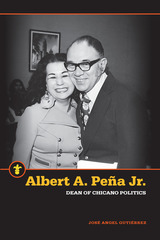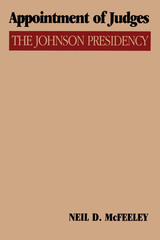4 start with A start with A

Administering Justice examines the leadership role of chief justices in the American states, including how those duties require chief justices to be part of the broader state political environment. Vining and Wilhelm focus extensively on the power of chief justices as public spokespersons, legislative liaisons, and reform leaders. In contrast to much existing research on chief justices in the states, this study weighs their extrajudicial responsibilities rather than intracourt leadership. By assessing the content of State of the Judiciary remarks delivered over a period of sixty years, Vining and Wilhelm are able to analyze the reform agendas advanced by chief justices and determine what factors influence the likelihood of success. These analyses confirm that chief justices engage with state politics in meaningful ways and that reactions to their proposals are influenced by ideological congruence with other political elites and the scope of their requests. Administering Justice also examines the chief justice position as an institution, provides a collective profile of its occupants, and surveys growing diversity among court leaders.


The selection of federal judges constitutes one of the more significant legacies of any president; the choices of Lyndon Baines Johnson affected important social policies for decades. This book explores the process of making judicial appointments, examining how judges were selected during Johnson's administration and the president's own participation in the process. Appointment of Judges: The Johnson Presidency is the first in-depth study of the judicial selection process in the Johnson years and is one of the few books that has analyzed any individual president's process.
Based on sources in the archives of the Lyndon Baines Johnson Library and correspondence from senators, party officials, Justice Department officers, the American Bar Association, Supreme Court justices, and the candidates themselves, the book is an important exploration of a significant aspect of presidential power. The author shows that Johnson recognized the great impact for social and economic policy the judiciary could have in America and sought out judges who shared his vision of the Great Society. More than any previous president since William Howard Taft, Johnson took an active personal role in setting up the criteria for choosing judges and in many cases participated in decisions on individual nominees. The president utilized the resources of the White House, the Department of Justice, other agencies, and private individuals to identify judicial candidates who met criteria of compatible policy perspective, excellent legal qualifications, political or judicial experience, youth, and ethnic diversity. The book notes how the criteria and judicial selection process evolved over time and how it operated during the transitions between Kennedy and Johnson and between Johnson and Nixon.

Charles Evans Hughes (1862-1948) was lawyer, governor of New York, Supreme Court Justice, presidential candidate in 1916, Secretary of State in the Harding and Coolidge administrations, a member of the World Court, and Chief Justice of the United States from 1930 until his retirement in 1941. To some, Hughes appeared larger than life. Robert H. Jackson once said of him, "[He] looks like God and talks like God." But to those who knew him well, he was quite human, extraordinarily gifted, but human nonetheless. His Autobiographical Notes portray him as no biography could and provide comment on almost a century of American history as seen by one who played a part in shaping its course.
Hughes's notes reveal two sides of his personality--a serious side when he was at work, and a genial, sometimes humorous, side when he was relaxing or with friends and family. When he writes of unofficial life--especially his boyhood, college years, and early years at the bar--he is raconteur telling his story with a certain amount of humor; when he writes of his official life he tends to be matter-of-fact. The early chapters describe the formative influence which shaped his character: his loving but intellectually demanding parents and deeply religious training; his unusual early education, which took place mostly at home and gave full scope to his precocity. Hughes's accounts of college life in the 1870s at Madison (now Colgate) and Brown University and of his career as a young lawyer in the New York City of the 1880s and 1890s are valuable portraits of an era.
Brought up to a high sense of duty, Hughes, from the start of his career, felt bound to take worthy legal cases and it was his reputation for integrity and thoroughness that led to his selection as counsel in the gas and insurance investigations of 1905-1906. This was the turn of events that precipitated him into the public eye and, subsequently, into politics. The culmination of his career came in 1937 when he led the Supreme Court through a constitutional crisis and confronted Franklin Roosevelt in the Court packing battle. In the intervening thirty years, Hughes was a major figure in American political and legal circles. His Notes record his impressions of presidents, statesmen, and justices. His reflections on the diplomacy of the 1920s and on the causes leading up to the Second World War are of immense historical importance.
The editors have supplied an introduction to the Notes, commenting on Hughes's personality and public image, his political style and rise to fame. They have remained unobtrusive throughout, intervening only to clarify references and provide necessary details. For the rest, they let Hughes speak for himself in the crisp and clear style that reveals his unusual intelligence and the retentive and analytical mind that distinguished his conduct of affairs.
Justice Felix Frankfurther wrote of Hughes: "I have known or know about most of the leading men of my time both here and in England enough to justify me in forming a judgment. There isn't the slightest doubt that C.E.H. is among the few really sizable figures of my lifetime. He is three-dimensional and has impact." Here, in these Notes, is this great man drawn in life-size proportions.
READERS
Browse our collection.
PUBLISHERS
See BiblioVault's publisher services.
STUDENT SERVICES
Files for college accessibility offices.
UChicago Accessibility Resources
home | accessibility | search | about | contact us
BiblioVault ® 2001 - 2024
The University of Chicago Press









